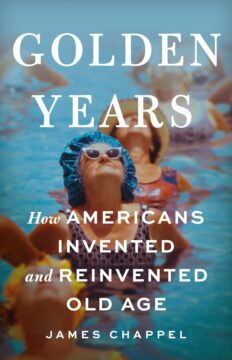Anne Matthews at The American Scholar:

Golden Years, a pellucid, unsparing account of the ends of life, anatomizes why a particular vision of old age was constructed in the 20th century, why it fell apart 40 years ago, and what may come next. Chappel believes that the system is worth repairing, if only for its utopian heart: the argument that we all deserve a life of dignity and public support once we become old or disabled. If not for Social Security, nearly 40 percent of older Americans would be living in poverty. Every part of the aging process is shaped by history, he warns, and as we decide how to handle a hot gray future, “it might help to understand a good deal more about the gray past.”
Histories of pension legislation rarely thrill, but Chappel is excellent on the radical, doomed attempts, in the 1880s and after, to repair lives damaged by war and chattel slavery. The long discourse on old-age support was sophisticated, the politics deadlocked. Social Security offered a moderate New Deal compromise, the least worst solution. “Beginning with the 1935 passage of the Social Security Act,” Chappel writes, “Americans were sold an idea of old age.” Yet millions were sidelined from the start, Black people especially, since agricultural and domestic workers were ineligible.
more here.
Enjoying the content on 3QD? Help keep us going by donating now.
